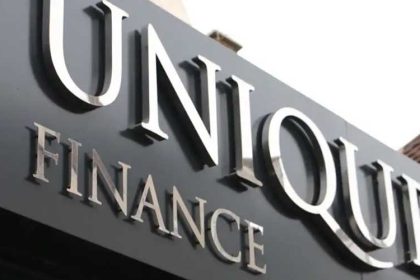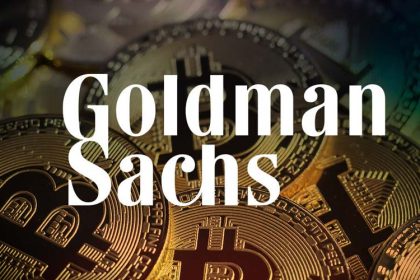\n
token It is a digital currency that is an independent blockchain does not have. If this definition is unclear to you, don't worry and follow this article to the end. In this article, we first explain in a very simple way what is the difference between a coin and a token in the digital currency market, and then we examine the advantages of creating a token instead of a dedicated blockchain.
What is a token?
Generally Token form of Crypto asset done or Crypto is generally on one Blockchain network contract. However, there are various definitions for token that can be correct depending on how we look at it. In the following, we review these definitions together:
- in the market Digital currenciesa “token” Digital currency is that Independent blockchain yourself does not have and on other networks (Like the Ethereum blockchain network) is moved.
- Today to any digital currency in Market There are called tokens. Each independent currency unit In a network, it can be considered a token. By this definition, Ether (ETH)The native digital currency of the Ethereum network is also considered a token, but ether is considered a coin in the market.
Don't forget that the explanations given about the difference between coins and tokens are based on the mentality of the market and it is possible.
Token applications
- the payment: One of the main uses of tokens is payment and users can make their payments using tokens.
- Making digital money: When you can make payments and invest using tokens, then you can make money with them!
- investment: Perhaps most digital currency users know tokens by this usage. investment with the aim of making a profit Volatility is one of the wide applications of tokens.
- Authentication and identity management: Since tokens have cryptographic properties, they can be used for authentication and secure identity management.
- voting: Each token can be registered as a unique identifier on the blockchain and no one can change its results; Therefore, they are considered an ideal option for voting.
- Defy: When we combine all these features, the token will be the best option for user activity in the DeFi space.
Types of tokens
Tokens are by nature two Category Fungible Tokens and non-homologous tokens (Non-fungible Tokens) are divided In addition, the token can be their use To divided into several different categories.
Fungible Tokens
In economics, a good (or money) if Fungible It is considered that its units with each other Replaceable and none of them can be considered less valuable or more valuable than the other.
for example, Bitcoin, Dollar And Rial They are in the category of similar assets. A 10,000 Toman note is completely equal in value to another 10,000 Toman note and both can be exchanged for each other. When a banknote You lend 10,000 Tomans to your friend, you don't expect to get the exact same bill back later.
Currently 99% market tokens like Tether And China Link like and all their units are similar in terms of value and interchangeable.
Non-currency Token (NFT)
One Non-fungible Token Or in short NFT, A digital asset It is rare and unique Blockchain Store And Displaced will be AOrphans of computer games, Collectible items, Digital artwork, Tickets for various events, Domain namesa tokenized house and… are placed in the category of non-homologous tokens.
Read more: What is NFT or Non-Featured Token?
Utility Token
Functional token Or Utility Tokenis a digital currency that is used to pay expenses and purchase goods and services in one or more specific projects. Today, most tokens in the market are utility tokens. For example Token Link It is a utility token that people can use to pay for the services of the Chainlink platform.
The value of these tokens is determined only by supply and demand, and there is no defined backing for them. Also, the value of these tokens is not directly related to the value or funds of the developer company.
Security Token
Securities token Or Security Token It is a digital currency whose owner will be the owner of a part of an asset, company or profit of a specific activity. For example, when a house or a company is converted into thousands of tokens and distributed to investors like stocks, that token is considered a security token.
Whether a token is a security or not is determined by the legislative body of the country. For example, in the United States, the US Securities and Exchange Commission determines whether an asset is a security or not through the Howie test. According to the Howie test, any asset that meets the following conditions is a security:
- be a financial investment;
- in that profit expectation is defined;
- be registered in a company;
- This profit must be obtained from the activity of a third party.
Read more: What is the Howey Test?
Governance Token
Sovereign token Or Governance It is a digital currency with which its holder can participate in decisions and votes for the future of a system or network. For example, the Uniswap token is a governance token whose holder can vote in important decisions of this decentralized exchange.
Governance tokens are often placed in the category of functional tokens, and this means that a governance token can also be a functional token.
Stablecoin
Stablecoins, also known as fixed-value digital currencies, are tokens that are backed by a common currency such as the dollar or pound or a specific asset such as gold. The most famous stablecoin is Tether (USDT).
This type of token is considered one of the most widely used types of token and a large part of digital currency market users use them in their transactions.
Wrapped Token
Wrapped tokens are tokens whose basic value is tied to another digital currency. These tokens are for improvement Interoperability between blockchains They are designed to allow users to transfer their assets from one blockchain to another.
for example, Rapid Bitcoin (WBTC) A rapid token whose value is tied to Bitcoin (BTC). WBTC on Ethereum network It works, which means that users can use it in Decentralized financial programs Use Ethereum.
The advantages of using complex tokens are:
- Increasing interoperability between blockchains
- The possibility of using the assets of one blockchain in another blockchain
- Access to new features and services
What is the difference between token and coin?
It is interesting to know that 70% of the digital currencies of the market in fact token and they use blockchains such as Ethereum, Binance Chain, IAS and Tezos. (Coinmarketcap) was.
Having a dedicated blockchain
The digital currency market is the most important thing that distinguishes a token from a “Coin”. Having or not having an independent blockchain Is. According to this definition, a Coin is a digital currency that has its own independent blockchain.
Bitcoin, Ethereum, Ripple, Solana, Bitcoin Cash, Cardano and hundreds of other digital currencies that have their own blockchains are included in the category of coins. The first reference to distinguish between coins and tokens is the Coin Market Cap website Was.
Among the biggest tokens in the market, we can mention Tether, Chainlink, Dai, Aave, Yearn.Finance, and BAT. Also, some tokens, after they are developed enough, seek to create their own blockchain and become coins.
Easier to make Token than Coin
Creating a token is much easier for blockchain developers than creating an independent blockchain and network, and most of the time, projects can create their own digital currency and achieve their primary goals without the astronomical costs of designing a blockchain.
Projects that intend to develop a blockchain, usually first create a token from an intermediary blockchain and pre-sell it. initial coin offering (ICO) and sell their tokens in exchange for national currency or other digital currencies before launching the project. The value of these tokens will have a direct relationship with the status of the project and its movement towards its goals.
Read more: What is ICO or Initial Coin Offering?
Dedicated wallet
While coins can each have their own wallet, tokens are stored on the host's blockchain wallets. For example, all Ethereum-based tokens are stored on Ethereum wallets and addresses, but you cannot store Bitcoin on an Ethereum address because it is a coin.
How to know if a digital currency is a token or a coin?
To find out whether a digital currency is a coin or a token, you can refer to its dedicated page on the Aruzdigital website.
Standard types of tokens
- ERC-20 One Standard token like is that for Ethereum network designed. This standard defines basic features such as transmission, storage and smart contracts.
- BEP-20 A standard for networking Binance Smart Chain (BSC) designed. This standard is similar to ERC-20 and offers similar features.
- ERC-721 One Non-homologous token standard is designed for the Ethereum network. This standard defines basic characteristics such as ownership, identity and uniqueness.
- ERC-1155 One Multi-purpose token standard is designed for the Ethereum network. This standard allows the creation of like and non-like tokens in a smart contract.
- TRC20 A popular standard for Creating virtual tokens in the Tron network Is. This standard provides the basic features needed to create virtual tokens and enables developers to create and use their tokens securely and efficiently.
- One of the most popular standards Token creation in Solana, SPL standard Is. SPL is an open source standard developed by the Solana Foundation. This standard provides the basic features needed to create like and non-like tokens.
Learning how to make tokens
Tokens can be created on any blockchain platform that uses smart contracts and high-level programming languages. Ethereum currently hosts more than 80% of the tokens in the market, followed by Binance chain, Ias, Cosmas, Tezos and Tron.
read more: What is a smart contract?
- In the first step, select the desired network. Creating tokens on Ethereum is more expensive than creating tokens on the Binance network, Solana or other blockchains.
- After choosing a blockchain network, you should see which programming languages the smart contract of that network is compatible with. For example Rust for the block Solana and language Solidity To Ethereum blockchain It works.
- To create a smart contract, you can use ready contracts use and change its variables; Note that this is only used for simple tokens with no usage.
- Finally, by paying the token multiplication fee, your token will be created on the blockchain network!
Tips for making tokens
Creating a token by yourself Less than an hour and at a very low cost (network fees) It does, but don't forget that simply creating a Token does not guarantee its value. Creating the token itself very easy but a token that has no purpose and use has no value.
Unfortunately, it is easy to create worthless and useless tokens, bA cover for fraud and sometimes scammers try to exchange tokens that have no value for real money.
In order for a token to attract value and gain acceptance, It must be involved in a functional project and added to valid exchanges, which is by no means an easy task.
Without exaggeration, we can say more than 90% of market tokens have no specific purpose or use And they are released just to fill the pockets of developers.
Why don't projects build their own blockchain?
- Saving money and time is the most important advantage of creating a token instead of a separate blockchain. Most of the projects that want to start working on their network and blockchain do not have enough funds and capital at the beginning, and for this reason, they first go to build a Token on another network. For example, Tron currency units (TRX) were initially offered as Ethereum Tokens, and after the development of the Tron blockchain, they were transferred to the main network.
- In many cases, there is no need to build a separate blockchain for a project And the project can take full advantage of the high security of the host blockchain. For example, the Chainlink project is now working well and has signed cooperation agreements with large teams, but its native Token is Link which at the time of writing this article is ranked 5th in terms of market value, works on Ethereum.
What is the best token wallet?
At the moment TrustWallet (TrustWallet.com) And Metamask.io The best wallets are for storing different tokens; Because they both have the possibility of manually adding tokens and support popular token creation networks.
Each token can be stored and transferred across all wallets and host blockchain addresses. For example, an Ethereum token such as Chainlink or Tether can be stored on Ethereum wallets and addresses. Simply put, by having a wallet and an Ethereum address you can store all the tokens based on it.
Advantages and disadvantages of buying and selling tokens
As we said, there are currently tens of thousands of different tokens and coins in the market, and this makes it difficult to choose the right currency for investment. However, it should not be forgotten that some of the tokens that are being marketed are valuable.
You can use the digital currency purchase page to buy suitable and valid tokens and coins. By using the shortcut to buy digital currencies, you can easily choose your suitable coins from more than 700 digital currencies and complete your purchase in a few seconds.
Authentication in this shortcut is very simple and you finish by entering your national number. The support of this shortcut is 24 hours and you can ask any question you have by using the support button in the shortcut.
Frequently asked questions
Bitcoin is technically a coin, but BTC, which is the native currency of this network, is a token.
Facilitating transactions on the blockchain is the most important goal of creating tokens.
Supply and demand, news about a project and collaborations that are formed around it are the most important factors in determining the price of tokens.
Conclusion
- In the digital currency market, a token is a digital currency that does not have its own independent blockchain and is stored in the blockchain and wallets of a host blockchain, but in general, the term token can be used to refer to any currency unit in a blockchain network. .
- Tokens are created using smart contracts and programming code, and the two main advantages of using them instead of creating a dedicated blockchain are saving time and money.
- Tokens can fall into dozens of categories in terms of type, but among most activists in this field, they are currently classified into three types: utility, security, and sovereign tokens.
In this article, we mentioned everything you needed to know about Token in the field of digital currencies and its difference from Coin. All the contents of this article can be summarized in the following three paragraphs:
\n
\n
RCO NEWS


















